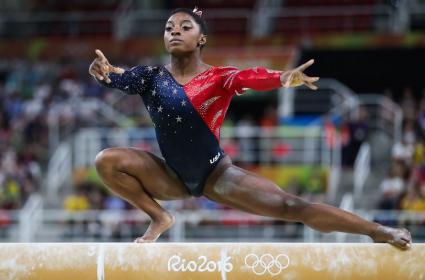Rio 2016: Most Equal Olympics Marred By Lingering Sexism

Rio de Janeiro: A terrifyingly fast Hungarian swimmer wins three gold medals but sees her coach praised as being “the man behind the performance”. A Mexican gymnast is criticized for having a man’s body. Australian champions are referred to as “girls” by their own country.
Media reports about sexist language or actions at the Olympics have been more widespread than ever, evidence of a broader and empowered fan base fighting for equality.
Some have suggested, however, that this controversy is not helping to move the needle toward progress as it fails to account for what has already been achieved. The 2016 Olympic Games are officially the most equal in history. Of the 10,444 athletes, around 4,700 are women, or 45 percent. This makes the percentages of female athletes seen in 1900 (2.2 percent), 1984 (23 percent) or even 2000 (38.2 percent) seem increasingly antiquated.
Rio will also see two new sports, rugby sevens and golf, added to the 28-sport gala in which women are competing. Sadly, these statistics tell only a fraction of the tale. Parity between competing athletes is a bare minimum, the absence of which would lend a crippling blow to the International Olympic Committee’s (IOC) wobbly reputation.
The Olympics, for all the seeming cronyism surrounding them, are unparalleled to inspire and impress. The way we talk about athletes matters, perhaps now more than ever. The commentary used to describe winners and losers alike matters. In years past, children watched their idols and played at being Nadia Comaneci, Mia Hamm or Jackie-Joyner Kersee. This year, they will vault off the couch like Simone Biles or cycle to school like Anna van der Breggen. When Mexican gymnast Alexa Moreno is called “a pig” or “overweight”, kids may remember that over seeing a stunning athlete who finished 31st in the world.
However, sadly, such social media criticisms are difficult, if not impossible, to eradicate. Paid commentators are another story. Now, it is true that commentators are at their best when capturing the thrill of an Olympic moment, when an athlete shows superhuman levels of skill for fleeting seconds. Good commentary can elevate a viewing experience. As such, it makes sense to be tolerant toward those who have a split second to choose their words for an audience of millions.
Despite this leeway, describing the US women’s gymnastics team, perhaps the finest ever assembled, as looking like they could “be standing in the middle of a mall”, is plain foolish. The NBC commentator who made this comment was probably only trying to make these athletes relatable. But, given their dazzling gold medal performance in Rio, it seems silly to try and make Biles, Aly Raisman and their teammates relatable. They’re not relatable, they’re Olympians.
IANS

















